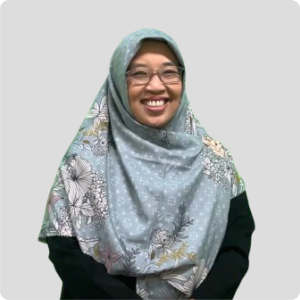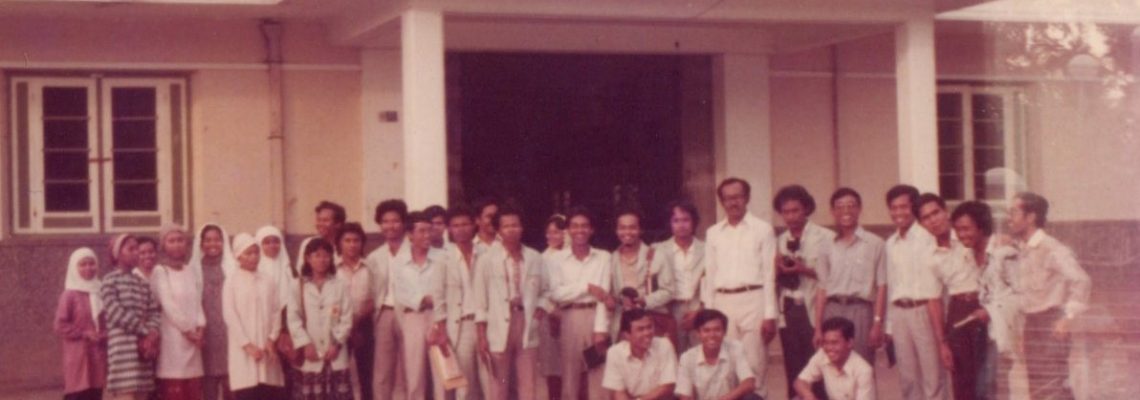
WELCOME TO THE OFFICIAL WEBPAGE OF THE ARABIC STUDY PROGRAM, FACULTY OF CULTURAL SCIENCES UGM
The Arabic Study Program was established on July 1, 1963 under the name of the Arabic Literature Department on the initiative of Prof. Dra. Siti Baroroh Baried. This department was conceived after Prof. Dra. Siti Baroroh Baried returned from Egypt. The establishment of the Arabic Literature Department was driven by two main factors. First, the need to master Arabic, a language that greatly influences the development of Indonesian. Second, the need to understand the socio-cultural relations between the nations of the Middle East and Indonesia. Furthermore, the program aims to train experts in Arabic language and literature to serve in relevant departments or agencies.
For 63 years, the Arabic Study Program has provided education and teaching, conducted research, and carried out community service activities addressing various issues. These activities have taken place in diverse locations, focusing particularly on challenges related to Arabic language, literature, and culture. To date, the program has produced over a thousand graduates who are now working throughout Indonesia. Graduates of the Arabic Study Program pursue a wide range of careers, including academic positions, research roles, and diplomatic service. Some alumni have even served as ambassadors. Other career paths include teaching, working in various government ministries and private institutions, and entrepreneurship.
The Arabic Study Program invites graduates of SMA/MA/SMK/Islamic Boarding Schools to join the undergraduate program in Arabic Study Program through various admission pathways offered by UGM. We encourage you to explore our website to learn more about how we foster the study of Arabic language, literature, and culture, contributing to stronger relations between Indonesia and the Arab world.
Thank You,
The Head of The Arabic Study Program
Dr. Zulfa Purnamawati, S.S., M.Hum.

The Arabic Study Program under the name of the West Asian Literature Department was established on July 1, 1963, at the initiative of Prof. Dra. Siti Baroroh Baried. The idea of establishing this department emerged after Prof. Dra. Siti Baroroh Baried returned from Egypt. Two main factors mainly drove the establishment of the West Asian Literature Department. First, the effort to master the Arabic language has influenced the development of the Indonesian language. Second, to understand the socio-cultural relations of the Middle East and Indonesia nations, where most of the population is Muslim. The purpose of establishing the Department of West Asian Literature is to prepare personnel with Arabic language and literature expertise in departments or agencies that need it. In addition, this department also intends to prepare and produce researchers at museums and related agencies. The sciences taught in the Department of West Asian Literature are closely related to other sciences in various departments and faculties. Hence, the expertise gained is also very much needed in other fields, such as government, tourism, and trade.
This department was reaffirmed by the Decree of the Minister of Education and Culture of the Republic of Indonesia Number: 0553/0/1983. This department has an Arabic Study Program that organises Arabic language, literature, and culture education. This study program was confirmed by the Decree of the Director General of Higher Education of the Ministry of Education and Culture of the Republic of Indonesia Number: 221/DIKTI/Kep/1996, dated July 11, 1996. Since December 4, 2015, the organizational structure of the Faculty of Cultural Sciences (SOTK FIB) has changed significantly. The Organizational Structure is stipulated through the UGM Chancellor Decree Number 1681/P/SK/HT/2015 concerning the Determination of the Organizational Structure of the Faculty of Cultural Sciences, Universitas Gadjah Mada. These changes also apply to the governance of the Arabic Study Program. In the new SOTK, the Arabic Study Program is no longer a structural unit under the management of the West Asian Literature Department, which is vertically responsible directly to the Faculty of Cultural Sciences. However, the Arabic Study Program becomes a non-structural unit under the management of two departments: the Department of Language and Literature and the Department of Intercultural. Both departments are responsible to the Faculty. Thus, the Vision, Mission, and Goals of the Arabic Study Program must be derived from Universitas Gadjah Mada, the Faculty of Cultural Sciences, the Department of Language and Literature, and the Department of Intercultural.
In 1973, the department’s management was given to the next generation, comprised of graduates of the first period of the Department of Arabic Study, namely Drs. M. Maskoer, who served until 1985. In 1985, the management relay was handed over to graduates of the second period, namely Drs. Aswadi, S.U., who served until 1991. Furthermore, the management was continued successively by Drs. Hasyim Asy’ari, M.A. from 1991 to 1996; Drs. Mudjeri from 1996 to 2003; Dr. Sangidu, M.Hum. from 2003 to 2004; Dr. Amir Ma`ruf, M.A. from 2003 to 2004; Dr. Sangidu, M.Hum. from 2003 to 2004. Dr. Amir Ma`ruf, M.Hum. from 2005 to 2007; Dr. Fadlil Munawwar Manshur, M.S. from 2008 to 2010; Dra. Uswatun Hasanah, M.A. from 2011 to 2015; Dr. Amir Ma`ruf, M.Hum. from 2015 to 2021; Dr. Zulfa Purnamawati, S.S., M.Hum. since 2022 until now.
Become a center of excellence in Arabic language, literature, and culture in 2031. Additionally, its development in Indonesia, which cares about humanitarian interest based on Pancasila by utilizing technological development.
The Arabic Study Program of Universitas Gadjah Mada embraces an educational philosophy called Patrap Triloka, which is inspired by the thoughts of Ki Hadjar Dewantara, the Father of National Education. Patrap Triloka comprises three core principles that teachers must embody: Ing ngarsa sung tuladha (In front, the teacher is a role model), Ing Madya Mangun Karsa (In the middle, the teacher is a motivator), Tut Wuri Handayani (In the back, the teacher is a supporter). These three principles underscore the significance of teacher-student interaction, encompassing three key models: exemplary, motivational, and supportive. Patrap Triloka was subsequently developed into a teaching and learning strategy at UGM, known as STAR (Student-Teacher Aesthetic Role-Sharing), which further refines the principles of Student-Centered Learning (SCL). STAR is UGM’s hallmark in implementing teaching and learning activities. Patrap Triloka does not position the teacher as the sole source of information in the learning process. Instead, they act as a facilitator and learning partner for students. STAR is designed to foster a more conducive learning environment that promotes reciprocal interaction between students and teachers.